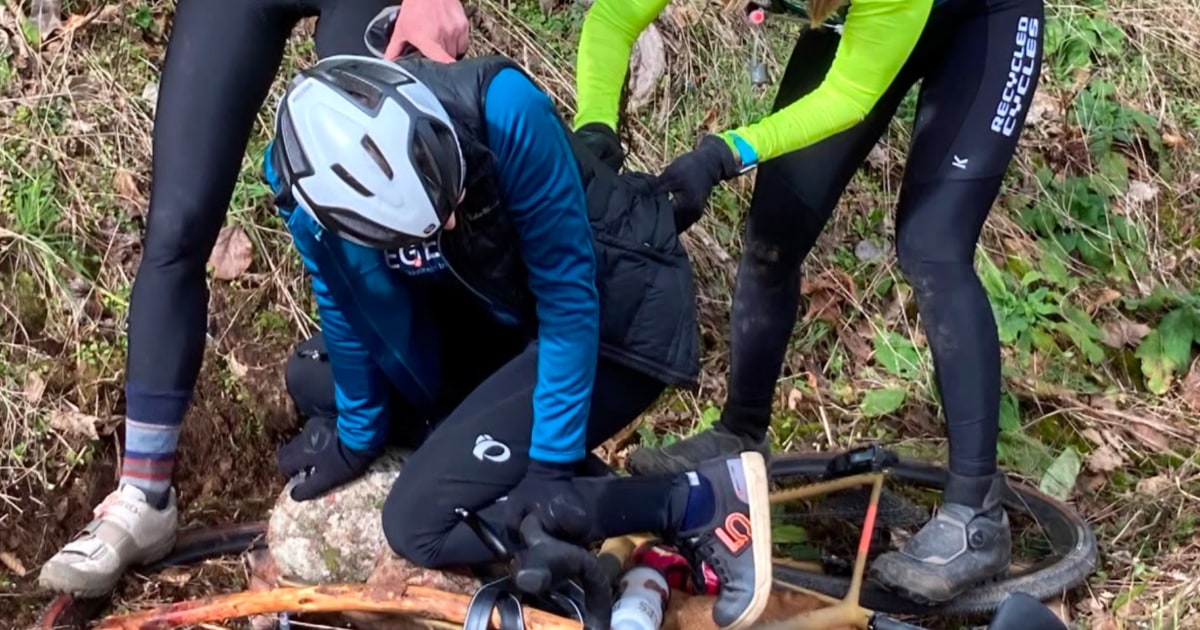The cat dialed back pressure through its crushing jaws, and the friend was able to pull away, fellow cyclists said in an interview one month after the incident east of Seattle.
A group of Seattle-area cyclists who helped one of their own escape the jaws of a cougar recounted their story this weekend, saying they fought the cat and pinned it down.
The woman who was attacked, Keri Bergere, sustained neck and face injuries and was treated at a hospital and released following the Feb. 17 incident on a trail northeast of Fall City, the Washington Department of Fish and Wildlife said in a statement.
Bergere said she spent five days at an area hospital and was still recovering.
Fish and Wildlife Lt. Erik Olson called the actions of her fellow cyclists “heroic” in the statement. But the extent of the cyclists’ battle with the 75-pound cat wasn’t immediately clear then.



I’m sorry, this is just fearmongering based on a rare event-
https://en.wikipedia.org/wiki/List_of_fatal_cougar_attacks_in_North_America
Bears, wolves and cougars are, generally, not dangerous to humans.
Even the article linked to calls it rare.
If anything this proves his point even more.
27 fatalities out of 126 attacks is an insane death rate. I guarantee you it’s much lower for bears, and maybe wolves too.
This would be because, like the posted stated, bears don’t have the intention to kill you they just want you to leave. If they attack it’s less likely you will die from it.
Cougars attack with the intent to kill you though, hence the higher death rates.
Yes it’s rare, but the poster never said it was common.
What that kill rate indicates is that cougars don’t attack unless they’re pretty damn sure they can not only win, but not be very injured in the process. Because injury = starvation for them. The only other case they’d attack humans is they’re really desperate, perhaps a female protecting her cubs, or all prey has been killed by fire, that kind of situation.
If a fully grown cougar gets the jump on you and you’re alone, you will likely lose. But if you are paying attention, see them and let them know they’ve lost the element of surprise, and make it clear you’re going to leave if they let you but fight if they attack, they probably won’t.
Of course if you’re hiking with your children or pets you should choose areas without known cougars, and keep them leashed close to you. Note: if you’re snack-size, you should bring bear spray, or your neighbors’ obnoxious kid who runs slower than you.
This was part of their point:
So you’re saying that people have only seen a cougar behind them staring at them 126 times in the last 100 years?
As for what you’re saying:
Please support that with evidence. Because if the kill rate is far less than 25%, which it is, they must be terrible at being hunters.
25% is a very high kill rate for natural predators.
https://www.explorationjunkie.com/lion-hunting-success-rate/
And that 15-25% rate is against their natural prey. 25% against a prey that is equal in size and not their natural prey is pretty darn good.
As for the first part of your post, you’re right. Just because you see a cougar behind you doesn’t mean it considers you food. I’ve always heard that the only time you EVER see a cougar is when it does NOT see you as food. If it doesn’t want to be seen then it won’t be seen. If you see it then it already considers you either non-food or a non-threat.
These animals aren’t dangerous until they are. In the wild, you don’t know if you’re encountering an injured or desperate animal. My main issue with OPs comment is the terrible advice on what to do when encounting one of these predators.
Also, how was the mountain lion population in the US doing until recently? Extermination of wild populations is a major reason why incidents in the past are so rare.
Not sure what you’re talking about; it looked more factmongering to me.
This cannot be a fact:
If this is a fact:
You win time, friend. But I will return!
Although…nah. You win. Until next time!